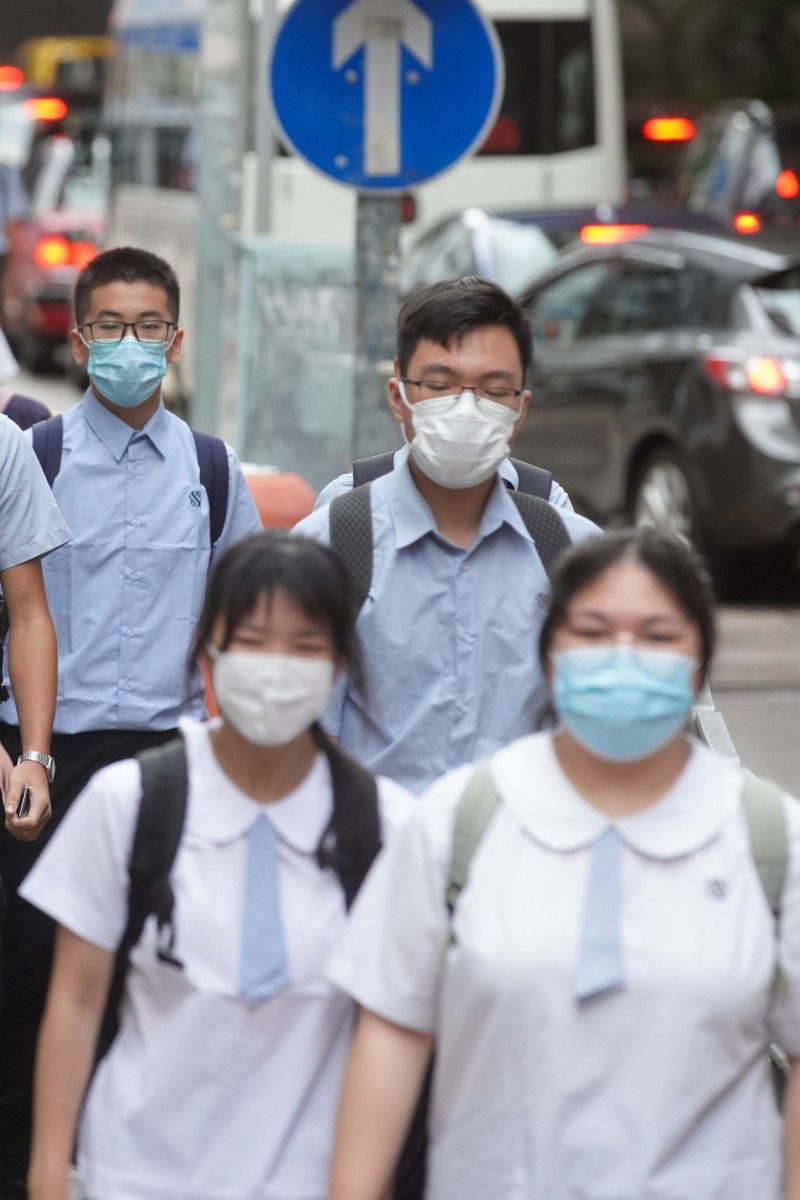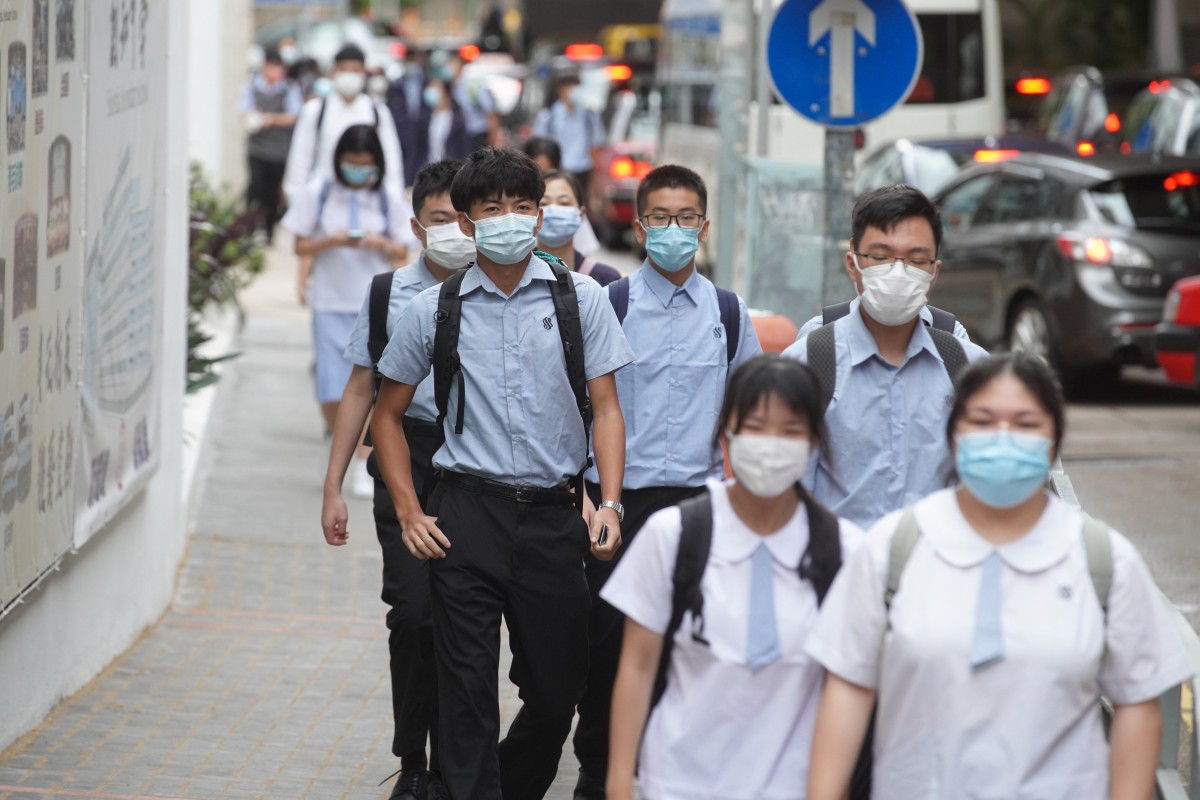
- Number of pupils enrolled at 59 secondary schools covered by direct subsidy scheme has fallen to 43,892, the third year of decline
- Education sector leader says some spots at schools already filled by students from mainland following easing of cross-border travel curbs in February
 The number of students enrolled at Hong Kong’s direct subsidy scheme schools has reached its lowest level since 2007. Photo: Winson Wong
The number of students enrolled at Hong Kong’s direct subsidy scheme schools has reached its lowest level since 2007. Photo: Winson WongHong Kong students living in mainland China are expected to fill up spots at the city’s semi-private schools, a sector leader has said, after the enrolment rates at institutions covered by the direct subsidy scheme (DSS) reached their lowest point since 2007.
The drop comes as a growing number of posts on Chinese social media platforms are showing parents and students how to get into some of the city’s top schools.
A government headcount last September showed 43,892 students were enrolled at 59 secondary schools covered by the scheme, which allows institutions more freedom to choose their curriculum, fees and entrance criteria compared with other government-subsidised schools.
Hong Kong secondary schools to cut ‘door-knocking’ places as student population shrinks
The schools are considered popular choices for the city’s middle-income families aiming to give their children a chance to study overseas, as they can offer non-local curriculums such as the International Baccalaureate and the United Kingdom’s GCE A-level.
A report on enrolment statistics said the figure for such schools marked a 16-year low and a decline over third straight years.
The enrolment rate for semi-private schools during the 2021-22 academic year was 44,636, marking a drop from 45,586 the previous year.
Dion Chen, chairman of the Hong Kong Direct Subsidy Scheme Schools Council, on Saturday said some of the spots at the schools had been filled by students from the mainland following the easing of cross-border travel curbs in February.
“We saw a noticeable jump in the number of applications from students on the mainland to schools this year,” he said.
Chen, who is also the principal of Ying Wa College, added that the number of students who had withdrawn from his school dropped from “dozens” during the last academic year to “about 10” for the current one.
What’s next for Hong Kong primary schools that didn’t meet minimum enrolment for government funding?
Some of the departing students had emigrated to other countries or switched to international schools, he said.
Lee Yi-ying, chairwoman of the Subsidised Secondary Schools Council, said that some of the group’s most popular institutions had also received a number of applications from students on the mainland after the border reopened.
“But they are Hong Kong students living on the mainland, so they are all entitled to study in Hong Kong public schools,” she said.
Lee added that the top talent pass scheme launched in December by the government had also brought in another batch of students to aided schools, but noted the amount was currently unknown.
The extent of the student influx from the mainland is expected to be revealed in next year’s report after the government completes its next headcount in September of this year.
Profiles on Xiaohongshu, an Instagram-like Chinese social e-commerce platform, are sharing tips on how students can prepare for interviews at public and private campuses in Hong Kong, ranging from kindergartens to secondary schools.
Some education agents on the platform are also offering a “one-stop” service to help parents sign up for schools from scratch.
The posts included details such as tuition fees, application periods, each school’s medium of instruction and an assessment of their “value for money”.
“The educational resources of DSS schools in Hong Kong are far superior to most government-funded schools, and the tuition fees are lower than those of international schools in Hong Kong. Therefore, they are the popular choice in the hearts of many new immigrant parents,” wrote one agent, who claimed to have helped more than 1,000 parents to enter the city’s elite schools.
Another post listed 10 schools covered by the scheme that were suitable for “new immigrants from the mainland”, adding: “It is not difficult to get children into Hong Kong schools if parents become city residents.”